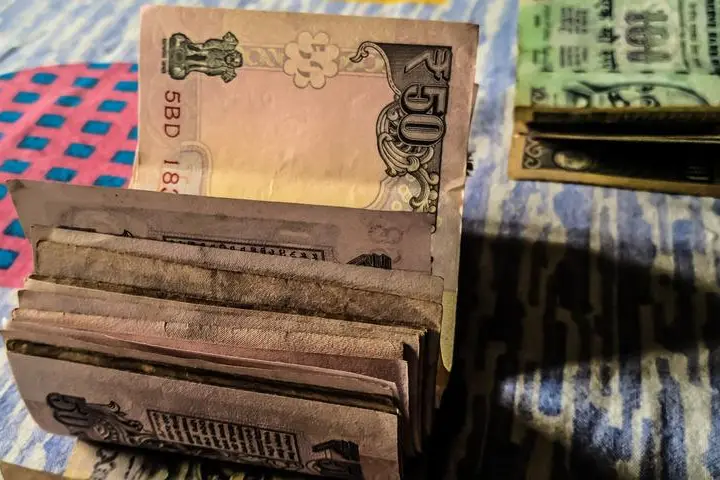PHOTO
Indian stocks and bonds rallied on Wednesday after the government moved quickly to calm markets and appoint a new central bank governor whose predecessor quit after a months-long tussle over policy.
The rupee weakened slightly, however, in response to a sharp rise in global crude oil prices which threatens to aggravate India's current account deficit.
The appointment of ex-finance ministry official Shaktikanta Das on Tuesday as the new Reserve Bank of India governor came just a day after Urjit Patel resigned from the post following clashes with the government, which wants more economy boosting measures ahead of a general election.
The benchmark 10-year bond yield was trading at 7.43 percent as of 0505 GMT, after earlier falling as much as 12 basis points to 7.41 percent.
The partially convertible rupee was trading at 72.03 per dollar versus its previous close of 71.84, after initially dropping to a low of 72.20 at the open.
"The appointment of the new governor is likely to calm investors and ease any uncertainty about the next head of the central bank," economists at HDFC Bank wrote in a note.
"We believe that there is unlikely to be a major change in the monetary policy path with the appointment of the new Governor as the structure of the Monetary Policy Committee remains broadly unchanged."
The broader Nifty share index gained 1.2 percent while the BSE index was up 1.12 percent.
Traders and analysts broadly expect the monetary policy stance of the central bank to gradually shift towards neutral as inflation readings have been subdued in recent months.
Inflation is expected to ease to a 16-month low in November, according to a Reuters poll, as food and fuel prices fell. Data is due to be released post market close on Wednesday.
RBI watchers said they expected the 61-year-old Das to put relations between the Mumbai-based bank and the finance ministry in New Delhi on a more stable footing. Das retired last year as secretary of the department of economic affairs, having previously served on the RBI's board.
Das was a strong advocate of slashing rates during his tenure, said Sue Trinh at RBC Capital Markets in Hong Kong.
But investors are watching closely to see how he holds up against outside influences after recent efforts by the government to gain greater control over the central bank's regulatory powers, raising concern over its independence.
(Additional reporting by Chris Thomas in BANGALORE; Editing by Kim Coghill)
© Reuters News 2018





















